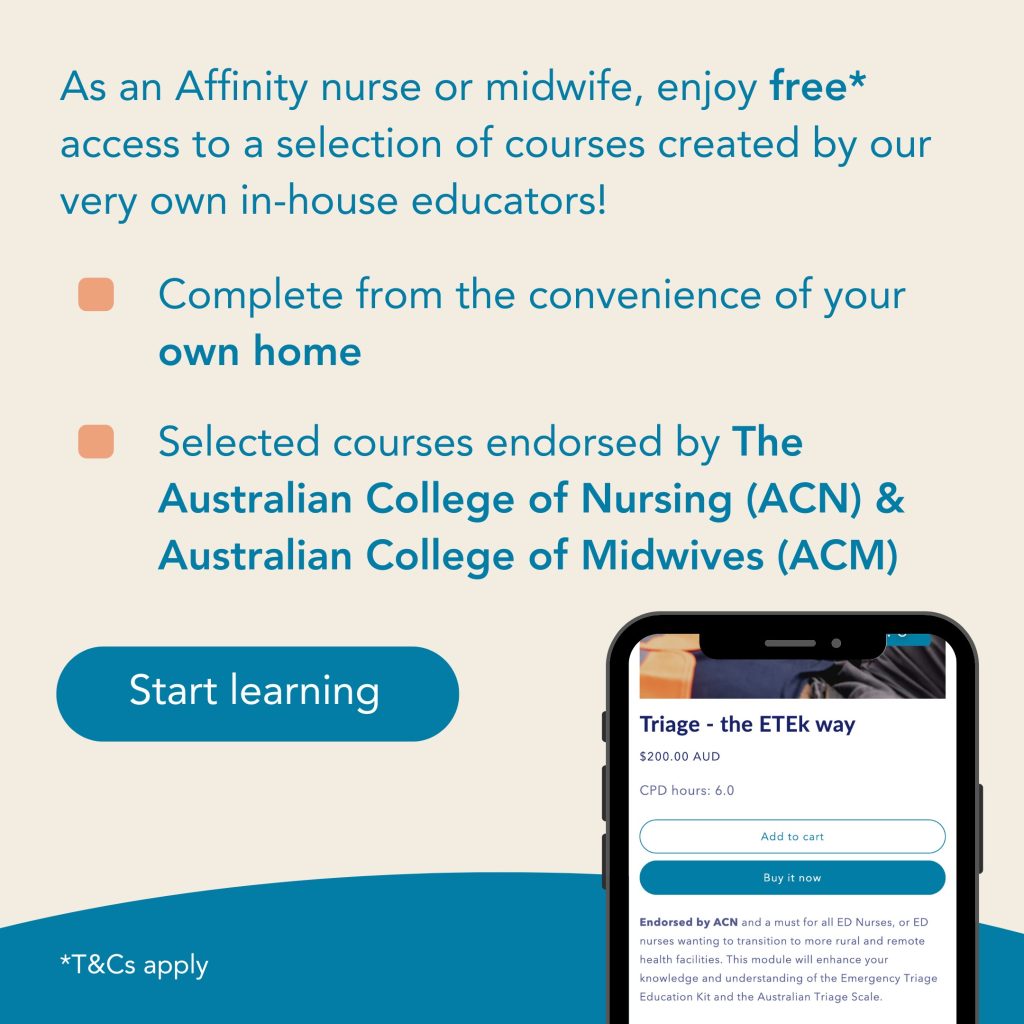4 minute read
We’ve heard and received your questions regarding the career of a travel nurse. Are you curious as to how this pathway may look? Do you wonder how it can differ to a traditional pathway?
Travel nursing can develop your career and professional capabilities. Continue reading as we navigate the exciting and ever-changing landscape that is travel nursing…
Please note that the details provided in this blog are for informational purposes only. You will all have a unique professional journey based on your experience, interests and capability for example.
What we’ll cover
- The entry point – EN or RN?
- Tailoring your expertise
- Your first travel nursing placement
- Leading the next generation of nurses and midwives
- Unconventional pathways
1. The entry point – EN or RN?
So, you’ve decided to begin your rewarding journey of becoming a nurse. You will have to complete your studies to become either an:
- Enrolled Nurse (EN)
- Qualification: Diploma of Nursing
- Timeframe: 18-24 months
- Offered by: Various registered training organisations (e.g. TAFE)
- Registered Nurse (RN)
- Qualification: Bachelor of Nursing
- Timeframe: 3 years
- Offered by: Tertiary education providers (universities)
Both ENs and RNs can travel nurse – ENs will require 5 years of full-time clinical experience while RNs require only 3. A significant portion of this experience should be in your chosen clinical specialty, or the clinical area you would like to work in as a travel nurse. Travel nurses are expected to ‘hit the ground running’ when they enter a new facility, so really rely on that confidence and competence to support them.
2. Tailoring your expertise as a new nurse
Congratulations, you have now graduated and are well on your way to becoming a travel nurse!
The placement hours you completed during your undergraduate studies may have given you an indication of what specialty areas interest you. If not, don’t worry, as the next few years is all about opening doors to a selection of opportunities, so you’ll be able to try a bit of everything if you wish!
It will be essential to complete a Graduate program after you graduate. Graduate programs for ENs and RNs are designed to support the transition from undergraduate status to graduate status and recognises that nursing is a difficult role with new nurses requiring additional support, education, and guidance.
Most graduate programs will provide 2-3 rotations over 12-18 months, through different clinical specialities for you to try your hand at several specialties. This is a fantastic opportunity if you are still unsure of which area you’d like to develop your professional skillsets in. Be open to all opportunities – you will learn essential skills no matter where you’re placed.
It may be wise to strategically widen your scope and develop specialised skills in high-demand areas such as critical care, emergency, perioperative nursing, or aged care if you are interested in travel nursing.
After you complete your graduate program, spend the next couple of years consolidating your learning and experience. Now is the time to identify your clinical interests and spend some time in these areas to build up a deep skill and knowledge set.
You will need to demonstrate in your CV that you have worked in a clinical setting long enough to be considered highly competent and confident. Travel nurses don’t always get orientation, training, or one-on-one time with an educator. So, consider the amount of experience you will need to be able to perform clinically and professionally at a high level in an unfamiliar environment.
Now is also the time to complete further training in your specialised field. For example, venepuncture/IV cannulation, non-invasive ventilation, or dialysis. These skills are highly desirable for clients when screening prospective travel nurses.
Nursing is a never-ending adventure. You may find a specialty you prefer but don’t be afraid to give other opportunities a go to bolster your nursing portfolio!
Continuous, dedicated learning will see you reaping the benefits of higher pay rates and more opportunities as you’ll have the chance to take on more responsibility with your newfound knowledge.
3. Your first travel nursing placement – experiencing a wider array of presentations
Once you have 3 years of full-time clinical experience under your belt as a RN (or 5 if you’re an EN), with much of this in one clinical speciality, you are eligible to undertake your very first travel nursing placement. Consider picking an agency who are passionate, knowledgeable and provides excellent support, just like Affinity!
Travel nursing will likely take you to rural, remote, and regional settings. Working in rural or remote facilities can be challenging but allows access to amazing benefits that you are unlikely to come across in regional or metropolitan hospitals closer to home. Some of these benefits include higher rates of pay, encountering unusual yet interesting presentations, providing holistic care for communities in need and many more.
4. Soar to new heights – Lead the next generation of nurses and midwives
The mass collection of your experiences can help to enrich your nursing portfolio and prepare you for a leadership position if that is your goal.
From the independence and diverse experiences gained from working as a rural or remote travel nurse, you can consider attaining postgraduate qualifications. A graduate certificate, graduate diploma or Masters degrees are standard requirements for promotional positions such as Clinical Nurse (CN), Clinical Nurse Consultant (CNC), or Nurse Unit Manager (NUM).
Please note that a facility may want to see you work in a permanent role within that promotional position before accepting you for that role first. For example, facilities will only accept a travel nurse for a NUM role where they have significant experience on their CV in NUM roles in similar facility/ward types.
By improving your knowledge and skills via post graduate qualifications, you will be able to make your mark not only on patients or communities, but also on fellow nurses and midwives whom you will lead and inspire to create a positive impact on the healthcare industry.
5. Making your mark through unconventional pathways as a travel nurse
When you think about travel nursing, the main benefits that come to mind are usually the flexible work life balance and stunning locations you can visit.
There are nurses who have carved out unconventional career pathways for themselves by taking advantage of these benefits that conveniently come along with the travel nursing lifestyle.
For example, there are entrepreneurial opportunities such as becoming a travel nursing influencer or online content creator.
While not the same as the leadership positions mentioned previously, these pathways also have the power to inspire, teach and motivate current or aspiring healthcare professionals across online platforms.
Here are some amazing travel nurses and midwives who have recently worked with Affinity!
There are many pathways you can take as a travel nurse – everyone’s journey is different. The one thing in common with these pathways is that you will continue to upskill and enhance your professional and personal development! Travel nursing is a journey of self-discovery.
Your travel nursing journey awaits with Affinity – register today and get started!








